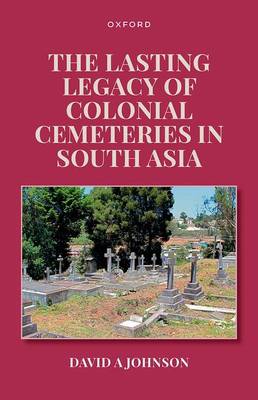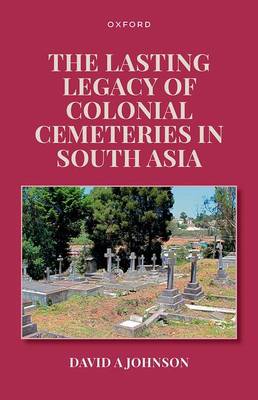
- Afhalen na 1 uur in een winkel met voorraad
- Gratis thuislevering in België vanaf € 30
- Ruim aanbod met 7 miljoen producten
- Afhalen na 1 uur in een winkel met voorraad
- Gratis thuislevering in België vanaf € 30
- Ruim aanbod met 7 miljoen producten
Zoeken
€ 150,45
+ 300 punten
Omschrijving
The Lasting Legacy of Colonial Cemeteries in South Asia explores the interplay between architecture and historical memory, highlighting how colonial cemeteries serve as enduring reminders of the British Empire in the region. During British rule, nearly two million Europeans were interred in government-controlled cemeteries, which not only housed their remains but also chronicled the expansion of Britain's Indian Empire, its military endeavours, and commercial activities. After India gained independence in 1947, these cemeteries were transferred to the new governments, which showed little interest in their upkeep. The British High Commission attempted to manage them through local Christian committees, but this initiative faltered by the late 1950s due to funding issues. In response to the rapid decay of these sites, the British Association for Cemeteries in South Asia (BACSA) was formed to preserve these historical markers and the colonial memories they embody in a changing postcolonial landscape.
Specificaties
Betrokkenen
- Auteur(s):
- Uitgeverij:
Inhoud
- Aantal bladzijden:
- 320
- Taal:
- Engels
Eigenschappen
- Productcode (EAN):
- 9780198959694
- Verschijningsdatum:
- 14/10/2025
- Uitvoering:
- Hardcover
- Formaat:
- Genaaid
- Afmetingen:
- 140 mm x 216 mm

Alleen bij Standaard Boekhandel
+ 300 punten op je klantenkaart van Standaard Boekhandel
Beoordelingen
We publiceren alleen reviews die voldoen aan de voorwaarden voor reviews. Bekijk onze voorwaarden voor reviews.











